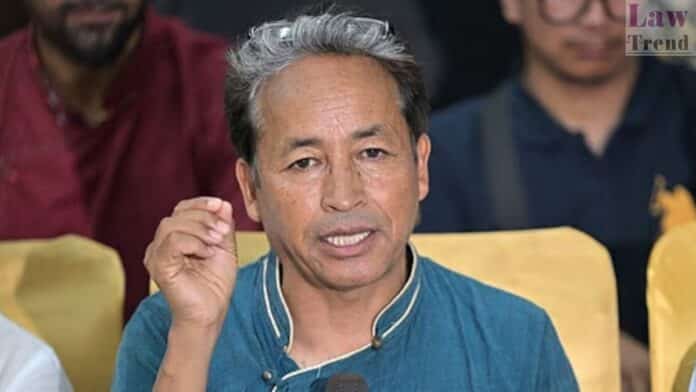The Supreme Court on Wednesday took on record an amended petition filed by climate activist Sonam Wangchuk’s wife, Gitanjali J. Angmo, challenging his detention under the National Security Act (NSA), and sought responses from the Centre and the Union Territory of Ladakh within ten days.
A bench of Justices Aravind Kumar and N.V. Anjaria directed Solicitor General Tushar Mehta, representing the Centre and Ladakh administration, to file a reply to the amended plea. The matter has been listed for further hearing on November 24.
The bench also permitted senior advocate Kapil Sibal, appearing for Angmo, to file a rejoinder if required after receiving the government’s response.
On October 15, the apex court had deferred the hearing after Angmo sought to file an amended petition adding new grounds against Wangchuk’s detention. The court had earlier noted a report from the Jodhpur Central Jail, confirming that Wangchuk’s elder brother and lawyer had met him in custody.
Earlier, Sibal had requested the court to allow Wangchuk to exchange written notes with his wife. The court had recorded Solicitor General Mehta’s submission that there was no objection to such communication between the detainee and his spouse.
The Supreme Court had on October 6 issued notices to the Centre and the UT of Ladakh on Angmo’s original plea but declined to pass interim directions for providing her the detailed grounds of detention.
Wangchuk, a prominent engineer and environmentalist from Ladakh, was detained under the NSA on September 26, two days after violent protests demanding statehood and Sixth Schedule status for Ladakh left four people dead and around 90 injured. The administration alleged that Wangchuk had incited the violence through his public speeches and mobilisation efforts.
The National Security Act, 1980, empowers the Centre and state governments to detain a person to prevent them from acting “in a manner prejudicial to the defence of India or public order.” The preventive detention under NSA can extend up to 12 months, though it may be revoked earlier.




